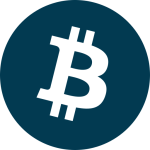What are the benefits of cryptocurrency trading?

You can trade 24 hours a day, 5 days a week

Transaction fees for XXX foreign exchange products are simply the spread in the bid-ask spread

The foreign exchange market allows you to look for opportunities in the up or down

Competitive spreads and offer traders the fastest and highest quality trade execution
In a broad sense, foreign exchange transactions refer to the exchange of one country’s currency with another country’s currency. Foreign exchange margin trading (hereinafter referred to as foreign exchange trading) refers to signing a contract with a (designated investment) institution, opening a trust investment account, and depositing a sum of funds (margin) as a guarantee, which is set by the (investment) institution (or brokerage). Credit operation limit, traders can freely buy and sell spot foreign exchange or foreign exchange futures of the same value within the limit. Forex margin trading offered by most foreign exchange brokers for individual traders is spot foreign exchange trading using margin.
Most individual traders trade foreign exchange through a foreign exchange broker. Before starting foreign exchange trading, traders need to choose a reliable broker registration account, deposit the margin into the account after registering the account, and after downloading the trading platform supported by the broker, traders can conduct foreign exchange transactions.
In foreign exchange trading, traders face huge risk of loss while enjoying the high returns brought by margin trading. Forex trading depends on the mindset of the trader, the trader’s strategy, the trader’s experience and the market conditions.
Gold margin trading means that in the gold trading business, market participants do not need to transfer the full amount of funds for the gold traded, but only need to pay a certain percentage of the total gold transaction amount as a performance guarantee for the physical delivery of gold. Gold margin trading can be further divided into gold spot margin trading and gold futures margin trading. The most famous market for gold margin trading is the London spot gold market, commonly known as London gold, and its code in the financial trading market is XAU.
Gold margin trading provides traders with a convenient investment method. Through gold margin trading, traders can hedge their risks. Especially during times of market volatility. Gold margin trading can carry out two-way long and short trades, and traders can go long or short to take full advantage of market conditions. In gold margin trading, if a trader holds a position overnight, like foreign exchange trading, it will also generate overnight interest. The overnight interest usually occurs when the customer holds the position overnight, which means that the settlement of a transaction is carried forward to the next delivery day, and the position exceeds the specified time. It reflects the current spot price and the interest rate of the two currencies under the customer service level. difference between.
The overnight interest rate is based on the interest rate difference between the two currencies and the spot price. Swap uses the swap rate (Swap point) to calculate the amount of daily overnight financing adjustments for foreign exchange products. All open positions are automatically rolled over to the next settlement day at the close of trading (5 p.m. ET). The adjustment of the overnight interest is simply the calculation of the daily position extension cost. In accordance with industry practice, XXX calculates positions held over the weekend on Wednesday ET. Therefore, the overnight interest on Wednesday (Thursday morning, Beijing time) is the three-day overnight interest.


There are many ways to trade gold, such as buying physical bullion; traders can also buy gold futures; traders can also buy mutual funds and ETFs (Exchange Traded Fund); CFDs, options and stocks are also gold important way of trading.
For most traders, buying physical gold for investment is not the best choice due to storage and purchase issues. It is a convenient choice to choose an online gold trading platform for trading. Traders who invest in futures can choose a futures margin trading platform. For traders who trade spot gold, as the world’s largest spot gold trading market, London Gold has the most mature development in spot gold trading and is trusted and welcomed by traders.
After selecting the traded variety, traders need to choose a qualified broker to open an account and deposit a certain amount of margin, and then they can trade. Traders trade by pre-judging the long and short direction to obtain the benefits brought by price changes. The price of gold is difficult to forecast due to the influence of many factors. But like other precious metals or financial trading products, gold trading can also be traded using fundamental analysis and technical analysis.
There are many factors that affect the price of gold, the most obvious one being the strength of the US dollar, but the relationship between gold and the US dollar is in dynamic changes. In times of financial stress, the negative correlation between the US dollar and gold is more reliable; Certainty is also an important factor affecting the price of gold, which includes inflation, interest rates, central bank demand, etc. ; Political situation or war plays an equally important role in promoting the price of gold. Due to the safe-haven nature of gold, the price of gold can fluctuate wildly in these situations.
Since gold trading is carried out on margin, traders need to be clearly aware that margin trading is a double-edged sword. While enjoying high profits, traders also face the risk of huge losses.
Bulk commodities refer to material commodities that can enter the field of circulation, but are not in retail links, have commodity attributes and are used for industrial and agricultural production and consumption. In the financial investment market, bulk commodities refer to homogeneous, tradable commodities that are widely used as basic industrial raw materials, such as crude oil, non-ferrous metals, steel, agricultural products, iron ore, coal, etc. Historically, commodity trading has been in the form of physical trading, but since modern times, commodities have mostly been electronically traded. Commodities can be traded in many forms. Futures contracts are one of the most common and popular forms of commodity trading. In addition, stocks and ETFs can also be used to trade commodities.
Commodity exchanges are physical or virtual markets for buying and selling commodities. There are about 50 major commodity markets in the world today, and these markets facilitate the trading of about 100 commodities. Commodities can be divided into two categories: hard and soft. Hard commodities are often natural resources that must often be mined or extracted, such as gold, rubber, and crude oil; soft commodities are agricultural products or livestock.
The main players in the commodity market are producers, industrial end users, traders and speculators. The world’s major commodity exchanges mainly include Chicago Mercantile Exchange (CME), New York Mercantile Exchange (NYMEX), London Metal Exchange, Japan Commodity Exchange, Shanghai Commodity Exchange, Australian Commodity Exchange, etc.
Trading cryptocurrencies through CFDs (Contracts for Difference) is a new way to trade this volatile market. And, you don’t even need to be an expert CFD trader on how to trade Bitcoin and other crypto CFDs. FP Markets offers cryptocurrency CFDs on major assets such as Bitcoin, XRP (Ripple), Bitcoin Cash, Litecoin and Ethereum for positions against USD and AUD.






